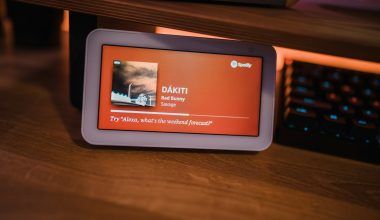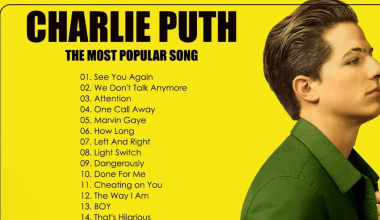Indie music labels are at the heart of the independent music scene, a world that prioritizes artistry, innovation, and individuality. They operate outside the confines of major record labels, giving musicians the freedom to create music that resonates authentically. If you’re an artist looking to chart your unique path or a listener intrigued by underground talent, understanding indie music labels is essential.
Indie music labels have been instrumental in nurturing groundbreaking artists across genres. From folk to electronic beats, these labels provide an environment where creativity flourishes. Unlike major record companies that often prioritize commercial success, indie labels focus on the artistry and storytelling behind music. This approach appeals to musicians who value their creative voice and to listeners seeking fresh, meaningful sounds.
The Evolution of Indie Music Labels
Indie music labels have a rich history, dating back to the mid-20th century. Initially, they emerged as small companies producing niche music for local audiences. These labels gained popularity as they supported genres overlooked by mainstream labels. Over time, they became known for introducing listeners to some of the most innovative and raw talents in music history.
One of the standout features of indie music labels is their adaptability. While they were initially limited by financial resources, technology changed the game. The rise of the internet and digital distribution allowed indie labels to reach global audiences without the massive budgets of major record companies. Platforms like Bandcamp and Beatport have also been pivotal, offering artists the tools to sell their music and connect directly with fans.
What Sets Indie Music Labels Apart
Indie music labels are synonymous with authenticity. Their business models often reflect a genuine passion for music rather than a corporate agenda. This distinction sets them apart in several ways:
- Artist-Centric Approach: Indie labels prioritize the artist’s vision. Musicians are encouraged to experiment and push creative boundaries without the pressure of producing formulaic hits.
- Flexible Deals: Unlike traditional contracts with major labels, indie music label agreements often provide artists with more control over their work, including rights to their music and decisions about promotion.
- Close-Knit Teams: With smaller teams, indie labels foster personal connections with their artists. This often results in better communication and more tailored support.
- Focus on Quality: The primary goal of an indie music label isn’t always commercial success. Instead, it’s about producing music that resonates deeply with niche audiences.
The Role of Indie Music Labels in Artist Development
Indie labels are more than just businesses—they are incubators for talent. These labels scout emerging artists, refine their skills, and help them navigate the complexities of the music industry. For new musicians, signing with an indie label can provide a crucial stepping stone.
For instance, many iconic artists, including Arctic Monkeys and Adele, began their careers under indie labels before rising to international fame. These labels often serve as the perfect launchpad, offering the resources and industry connections necessary to grow while maintaining artistic integrity.
Selling Your Music on Beatport
For artists looking to expand their reach, selling music on platforms like Beatport is a game-changer. Beatport, known for its focus on electronic music, provides an ideal space for indie musicians to showcase their work to a dedicated audience. Indie music labels frequently leverage this platform to introduce their artists to the global electronic music community.
To succeed on Beatport, artists and labels need to focus on quality production, engaging artwork, and effective promotion. By aligning with an indie music label, you gain access to a team that understands how to market your music effectively in a competitive landscape.
The Impact of Digital Tools on Indie Music Labels
Digital tools have revolutionized the way indie music labels operate. From online marketing to global distribution, technology has leveled the playing field, allowing indie labels to compete with major players. Social media, for instance, offers a direct line to fans, while streaming platforms provide an accessible way to distribute music worldwide.
Moreover, independent artists no longer rely solely on physical album sales. Extended plays (EPs), singles, and collaborations are now easy to distribute digitally, keeping artists relevant and visible. This shift has enabled indie music labels to thrive in an industry that was once dominated by a few major corporations.
Why Listeners Love Indie Music Labels
The appeal of indie music labels extends beyond artists—they attract a loyal audience as well. Fans of indie music often seek authenticity and diversity, values that are inherent in the indie label ethos. The genre-defying nature of indie music means listeners can discover a wide array of sounds, from acoustic ballads to experimental beats.
Indie music labels also foster a sense of community. Events, festivals, and intimate gigs organized by these labels often create a unique bond between artists and their audiences. This connection is rare in the mainstream music scene and adds to the charm of independent labels.
Challenges Faced by Indie Music Labels
While indie music labels offer numerous advantages, they are not without challenges. Financial constraints, for instance, can limit marketing efforts or delay production. Competing with major labels for attention in an oversaturated market also requires creative strategies.
However, these challenges often lead to innovative solutions. Indie music labels have become adept at crowdfunding, collaborating with other labels, and utilizing social media to amplify their reach. These strategies not only address financial hurdles but also build stronger relationships with fans and artists.
How to Support Indie Music Labels
If you’re passionate about music, supporting indie music labels is one of the best ways to ensure that creativity thrives in the industry. Here are some simple ways to contribute:
- Purchase music directly from artists or labels.
- Attend live performances and events.
- Share music from indie labels on social media.
- Explore platforms like Bandcamp or Beatport to discover and support indie artists.
For further reading, explore these related articles:
- Who is the 1 Artist on Spotify?
- Spotify Valuation: Understanding the Value of the Music Streaming Giant
For additional resources on music marketing and distribution, visit DMT Records Private Limited.






